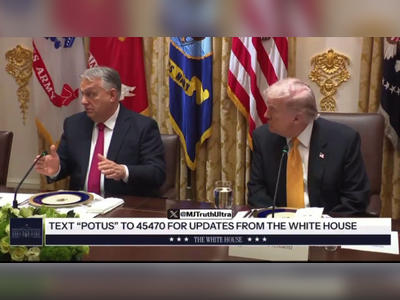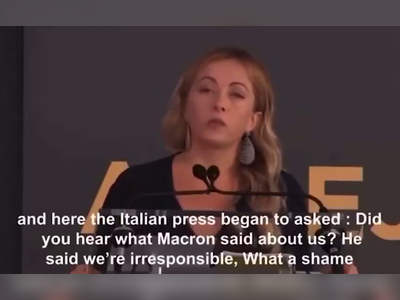Trump Signs Resolution Against California's Ban on New Gasoline-Powered Cars
The U.S. President's action counters California's ambitious electric vehicle policy, leading to potential legal confrontation.
On June 12, 2025, U.S. President Donald Trump signed a resolution aimed at ending California's plans to prohibit the sale of new gasoline-powered vehicles by 2035. This legislation, backed by Congress in May, seeks to block the state from enforcing stricter environmental regulations regarding vehicle emissions than those at the federal level.
During a White House event, President Trump declared, "We are officially saving the American automobile industry from destruction." California's Democratic government promptly announced its intention to challenge this federal resolution in court, asserting its rights to establish more stringent environmental standards.
California Attorney General Rob Bonta criticized Trump's policy, claiming it "compromises our lives, our economy, and our environment," and labeled the resolution as "irresponsible" and "illegal."
As the most populous and wealthiest state in the U.S., California has frequently been a focal point in environmental policy debates.
The state's regulations have long required automakers to comply with stricter emissions standards, significantly influencing vehicle manufacturing nationwide.
Trump's recent actions have positioned him against the progressive policies of California, which he has characterized as dictatorial practices of "leftist" ideologues.
In his remarks, the president argued that California's regulations exert undue pressure on automakers across the country, given that they cannot avoid compliance with the largest car market in the United States.
Trump referred to California's approach as an "ugly plan" that would effectively eliminate the internal combustion engine, despite its continued popularity among many consumers.
He emphasized that consumers should have the choice to purchase electric vehicles but also retain access to gasoline-powered options.
The California legislature had enacted a law in 2022 mandating that all new vehicles sold in the state be zero-emission by 2035, a goal mirrored by several other Democratic-led states.
However, Trump's administration and the Republican Party have criticized this policy, framing it as an overreach that imposes a one-size-fits-all mandate on the entire nation.
California leads the U.S. in the number of electric vehicles and has received federal waivers for over half a century, allowing it to set higher emission standards than the federal government.
This has historically encouraged automakers to produce vehicles that comply with California's stringent regulations.
Trump's alignment with fossil fuel interests is underscored by his campaign promise in 2024, advocating for increased oil extraction and rolling back previous targets set by Democratic President Joe Biden, which aimed for 50% electric vehicle sales in the U.S. by 2030. Additionally, Trump indicated that he might soon increase the 25% tariff on imported vehicles, further indicating his administration's protective stance towards the domestic automotive industry.
During a White House event, President Trump declared, "We are officially saving the American automobile industry from destruction." California's Democratic government promptly announced its intention to challenge this federal resolution in court, asserting its rights to establish more stringent environmental standards.
California Attorney General Rob Bonta criticized Trump's policy, claiming it "compromises our lives, our economy, and our environment," and labeled the resolution as "irresponsible" and "illegal."
As the most populous and wealthiest state in the U.S., California has frequently been a focal point in environmental policy debates.
The state's regulations have long required automakers to comply with stricter emissions standards, significantly influencing vehicle manufacturing nationwide.
Trump's recent actions have positioned him against the progressive policies of California, which he has characterized as dictatorial practices of "leftist" ideologues.
In his remarks, the president argued that California's regulations exert undue pressure on automakers across the country, given that they cannot avoid compliance with the largest car market in the United States.
Trump referred to California's approach as an "ugly plan" that would effectively eliminate the internal combustion engine, despite its continued popularity among many consumers.
He emphasized that consumers should have the choice to purchase electric vehicles but also retain access to gasoline-powered options.
The California legislature had enacted a law in 2022 mandating that all new vehicles sold in the state be zero-emission by 2035, a goal mirrored by several other Democratic-led states.
However, Trump's administration and the Republican Party have criticized this policy, framing it as an overreach that imposes a one-size-fits-all mandate on the entire nation.
California leads the U.S. in the number of electric vehicles and has received federal waivers for over half a century, allowing it to set higher emission standards than the federal government.
This has historically encouraged automakers to produce vehicles that comply with California's stringent regulations.
Trump's alignment with fossil fuel interests is underscored by his campaign promise in 2024, advocating for increased oil extraction and rolling back previous targets set by Democratic President Joe Biden, which aimed for 50% electric vehicle sales in the U.S. by 2030. Additionally, Trump indicated that he might soon increase the 25% tariff on imported vehicles, further indicating his administration's protective stance towards the domestic automotive industry.









